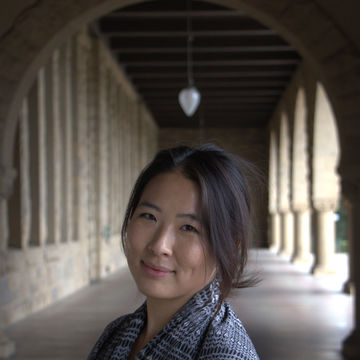11th Annual Korean Studies Writing Prize Awarded: Co-recipient Michelle Ha

Michelle Ha (PhD student, Modern Thought & Literature) was a co-recipient of the 11th annual Korea Program Prize for Writing in Korean Studies, for her paper "Beyond Diaspora: Racial Capitalism and Empire in Kim Young-ha’s Black Flower"
"The novel [Black Flower] was published in 2003 and was revised in 2010 and in 2020, and Michelle worked with me to read the novel and its English and Spanish translations carefully. Michelle considers Kim’s role as historian, as fiction writer, and as a narrator who is part of the fabric of the story," says Dafna Zur, Associate Professor of East Asian Languages and cultures. “She finds that Kim’s narrative technique raises questions about how to rethink migration as an event of both national, geopolitical, and personal import. By providing thick analysis of the character trajectories of two non-Korean characters, Michelle demonstrates that the Korea-to-Mexico story is one that is far more encompassing than another diaspora account. Rather, she successfully frames the novel as one that centers racial capitalism and empire, which are recurrent concerns of hers in her own intellectual journey.”
In Ha's own words: "I am researching early twentieth century Korean indentured labor migration to Mexican agave plantations within the frames of racial capitalism and empire. These frames are certainly relevant to understanding the story of Koreans in Mexico; however, most South Korean scholarly and artistic works tend to present this migration in bilateral terms, explained by push and pull factors between the Korean and Yucatán Peninsulas. ”
“Kim Young-ha’s historical novel Kŏmŭn kkot (Black Flower) uniquely seems to break out of this binational mold, incorporating themes of race and racialization as well as transpacific imperial competition into its narrative," Ha comments. "In my paper, I argue that Black Flower takes up an imperial turn—against dominant trends in South Korean scholarship that tend to narrowly focus on issues of adaptation and ethnic identity between countries of origin and destination. By analyzing the novel’s understudied narrative features, I demonstrate how Black Flower contextualizes Korean migration to Mexico within European settler colonialism in the Americas and Japan’s transpacific settler empire. In doing so, I suggest that Black Flower provides a model of narrating migration history with a more detailed and nuanced understanding of the political, legal, and economic structures that shape human movement—one that helps place the Korean experience in global and comparative perspective."
Sponsored by the Korea Program and the Center for East Asian Studies, the writing prize recognizes and rewards outstanding examples of writing by Stanford students in an essay, term paper or thesis produced during the current academic year in any discipline within the area of Korean studies, broadly defined. The competition is open to both undergraduate and graduate students.
This year's co recipient is Yeseul Byeon.
Past Recipients:
10th Annual Prize (2021)
9th Annual Prize (2020)
8th Annual Prize (2019)
7th Annual Prize (2018)
6th Annual Prize (2017)
5th Annual Prize (2016)
4th Annual Prize (2015)
3rd Annual Prize (2014)
2nd Annual Prize (2013)
1st Annual Prize (2012)